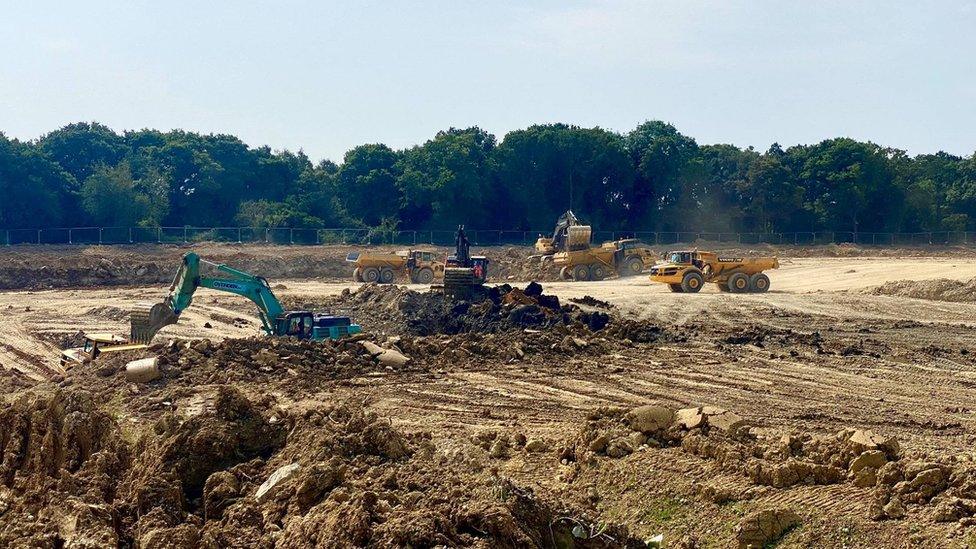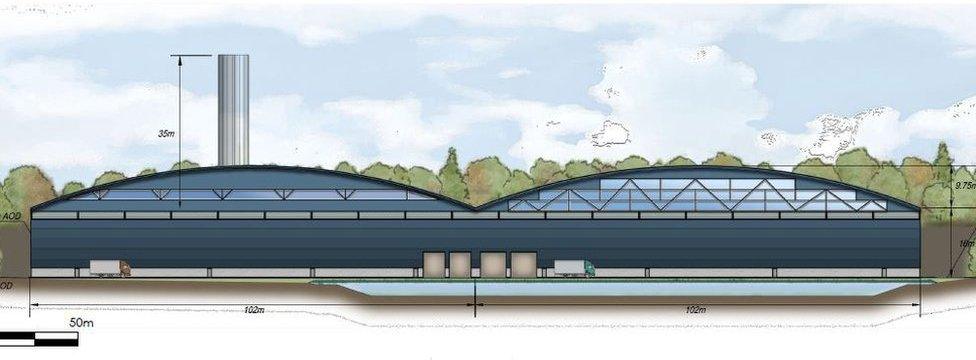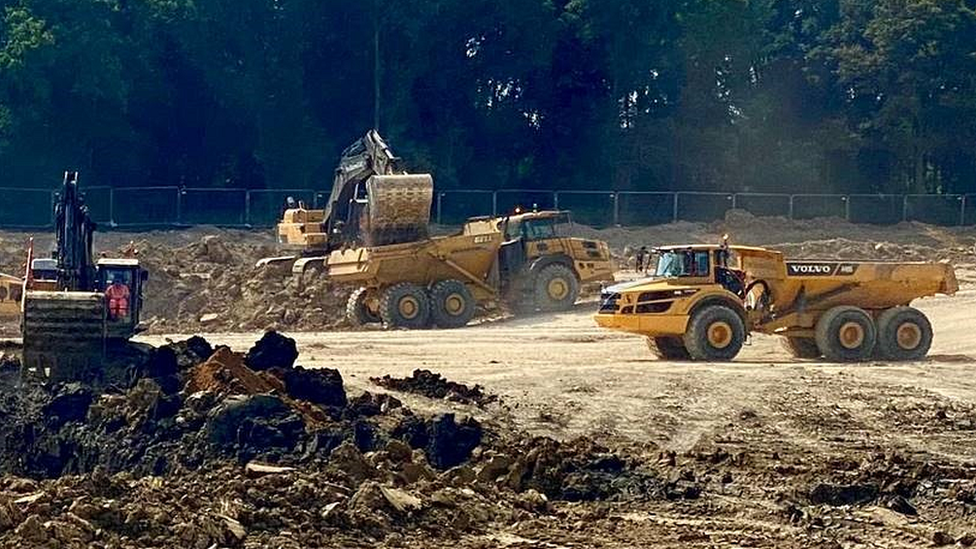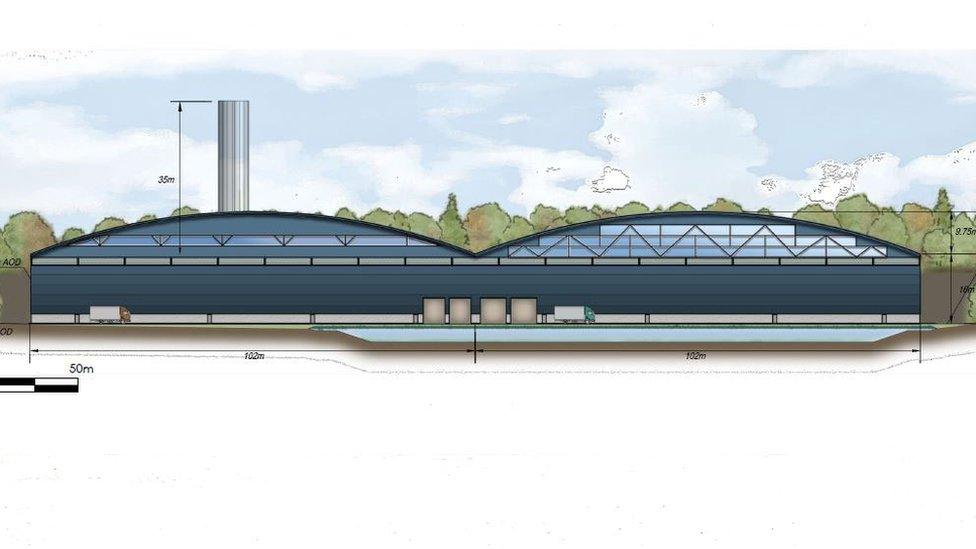Essex waste incinerator 'better for climate than landfill'
- Published

The incinerator was first given planning permission in 2010
A new £600m incinerator will be better for the environment than sending waste to landfill, the company building it has claimed, as construction continues.
The plant at Rivenhall, near Braintree, Essex, will generate electricity by burning unrecyclable waste from 2025.
Campaigners are concerned about air pollution and reducing recycling rates.
"Residual waste is being landfilled, which is the worst thing you can do from a climate change perspective," said John Ahern of waste firm Indaver.
"Incineration is an improvement."
'Solving a problem'
He said about half of the cost of the waste-to-energy project, at a former airbase, went into gas-cleaning technology and environmental control.
"We can't just burn things, we're not allowed to pollute," he told BBC Essex.
"[Society] produces too much waste [worldwide], and the UK is not self-sufficient in generating its own electricity - we're relying on fossil fuels.
"In the long term we do need to look at the waste we generate, we need to get better.
"We are solving a problem that is there now."

The incinerator is designed to look like the aircraft hangars at the old Rivenhall airfield
Planning permission for the building was granted by Essex County Council in 2010, with a permit to operate approved by the Environment Agency in 2020.
The firm said it would burn 595,000 tonnes of rubbish from across the region each year, external and generate enough electricity for 60,000 households.
Construction began in March last year, and initially involved moving three million tonnes of soil, Mr Ahern said.
Ten over-sized lorries delivering boring and piling machinery from Nottingham went through villages near the site this week.
Mr Ahern said these had not encountered any problems and three further "processions" would happen before the end of the year.
'Very controversial'
James Abbot, a Green district councillor representing wards near the site, described what Mr Ahern had said as "green wash".
He added the site would produce 600,000 tonnes of carbon dioxide a year, making it the biggest single producer of CO2 in Essex.
"It will have a massive negative impact on climate change," he said.
"It will reduce air quality.
"The rules are that it's not supposed to produce pollution at a level that will harm human health, but that's very controversial and those limits keep changing."
Campaign group Parishes Against Incineration said it would continue to protest as construction continued.
Nick Unsworth, from the group and also an independent Braintree district councillor, said: "We have a longer term plan, which we are exploring, to star our own air-quality monitoring."

Find BBC News: East of England on Facebook, external, Instagram, external and Twitter, external. If you have a story suggestion email eastofenglandnews@bbc.co.uk
Related topics
- Published25 February 2022

- Published21 July 2021

- Published3 January 2020
